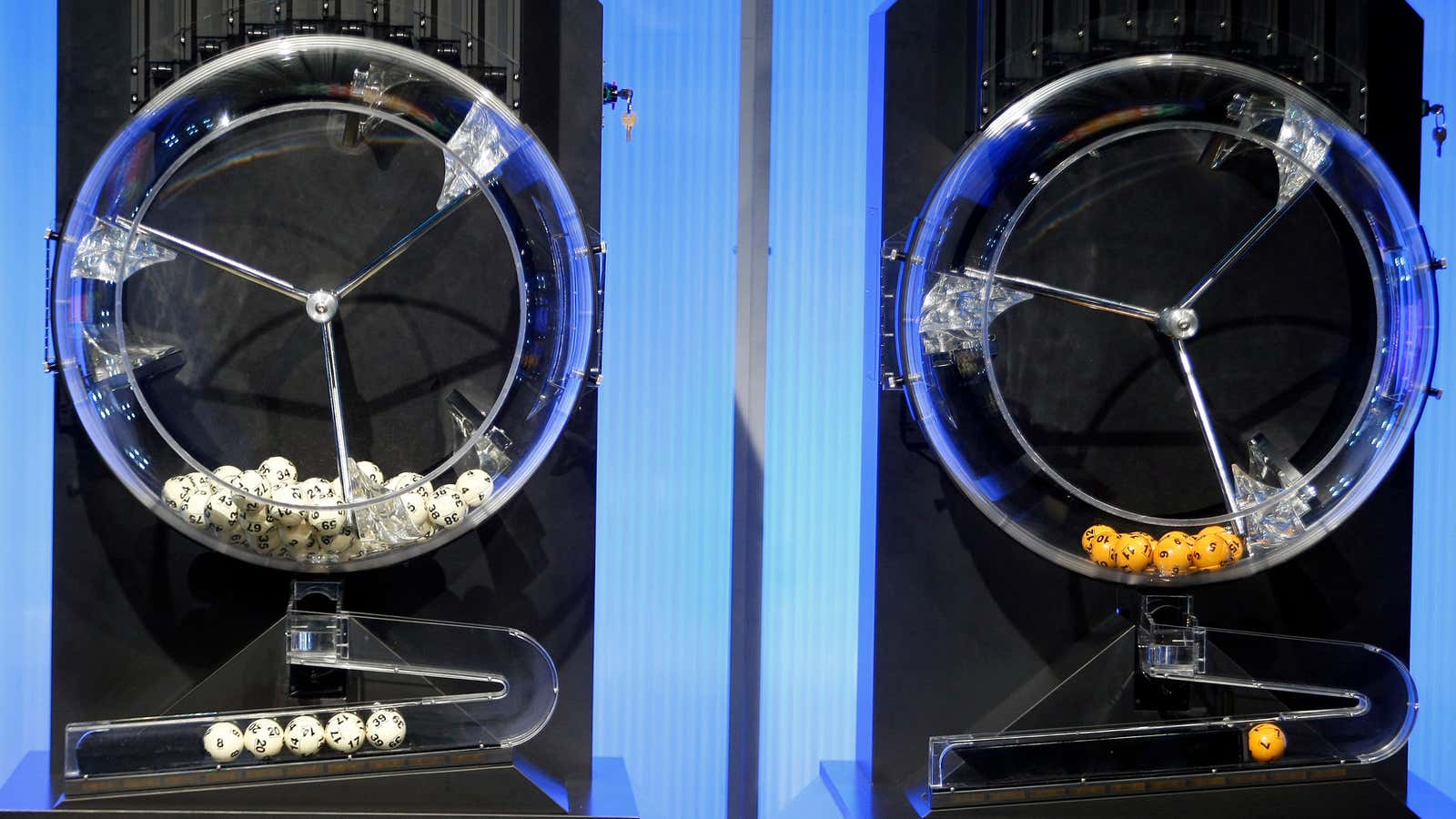People love lotteries. Almost half of Americans play at least once a year; Spain’s annual national lottery has been going strong for more than a century; and in China the national welfare lottery has collected $167 billion since it began in 1987. This love is unrequited: The odds of winning are abysmal, which can turn them into a tax on the poor.
But that’s why some economists love lotteries, too. They demonstrate a great way to trick people into doing things they ought to be doing anyhow.
Take Slovakia: Like some of its fiscally-troubled European brethren, the government finances itself through a value-added tax, which it’s having some trouble collecting, since businesses are not reporting their sales for VAT-collection. How do you change that? The government there recently started a new lottery that citizens could enter with a receipt from any purchase of more than €1. That turned the country’s lottery-loving citizenry into a corps of internal revenue inspectors, demanding receipts from merchants and, according to the finance minister, increasing VAT collections.
Their eagerness comes from a quirk of human psychology which, when documented, helped win Daniel Kahneman and Vernon Smith the 2002 Nobel Prize in economics. Their research found that rational decisions about costs and benefits were distorted by how people framed them in their minds: People tend to embrace risk when there is a potentially large gain, and avoid it when there is potential for even a small loss. That’s why someone who will pay $5 for an infinitesimal chance to win a huge jackpot might not put away $5 they could spend today in a bank to save for the future.
That’s been a long-time message of Peter Tufano, an economist and dean of Oxford’s Said Business School. His non-profit, D2D Fund, promotes a number of programs to build financial assets for the poor that take advantage of this facet of human behavior. One of the most effective is known as the save to win fund. Consumers are encouraged to enter a “lottery” which is actually a savings account. The money they spend to enter is saved, and they become eligible for a cash prizes drawn from the combined interest earnings.
This is behavioral economics at work: While people won’t save money for the guaranteed-but-small return of interest on a certificate of deposit, they will pay for a tiny chance of a large return. Tufano’s pilot programs in the United States have led to $72.2 million in savings (pdf) for more than 40,000 account holders between 2009 and 2012. The lottery is a bonus, Tufano says—what’s important is that they are saving rather than spending or gambling their principal in the first place, making them more resilient to financial shocks.
Fans of these methods have been encouraging policymakers to use them more often. Four years ago, Harvard Business Review floated a proposal that would enter US taxpayers in a lottery as a way to encourage accurate and timely filing. But despite president Obama’s much bally-hooed “nudge”-friendly policy team, that plan hasn’t been implemented.
There are those that might object to lotteries as a nudge toward wise choices. Several religious faiths are skeptical, seeing gambling as sinful. Some governments, from China to many US states, are already using lotteries to fund social welfare or arts programs, and might not like to see competition from savings-building programs. And maybe it all feels a bit manipulative.
But if sweepstakes like these can be more widely useful, maybe we need a lottery that gives an entry ticket to every lawmaker who votes for smart social policies like these. After all, everything is about incentives.
